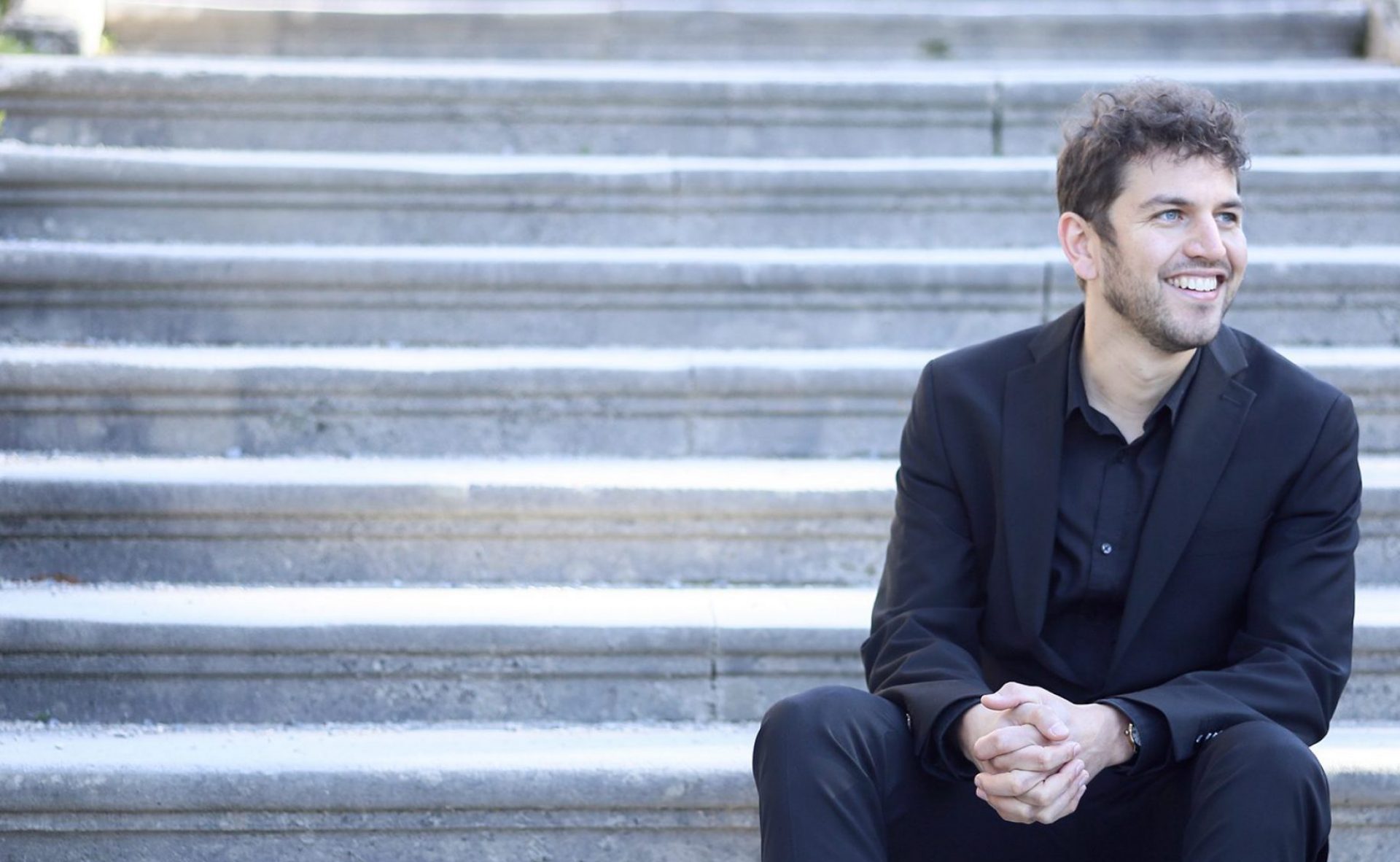Karola Sophia Schmid is a German soprano who is currently an ensemble member at Staatstheater Darmstadt, where she has performed roles such as Pamina [Die Zauberflöte] and Marzelline [Fidelio]. In the 2017/18 and 2018/19 seasons she was an Opera Studio scholarship holder at the Staatstheater Kassel and sang roles there such as Musetta [La Bohème], Nannetta [Falstaff], and Anna Reich [Die Lustigen Weiber von Windsor].
She has made guest appearances at the Nationaltheater Mannheim, the Hanover Staatsoper, Staatstheater Nuremberg, Theater Erfurt, Theater Magdeburg and in many productions at Theater Kiel. We first met while working together at Darmstadt, and got together to discuss life as a soprano, how she got her first break, and how she maintains her career today.
For the German version of this interview, please click here.
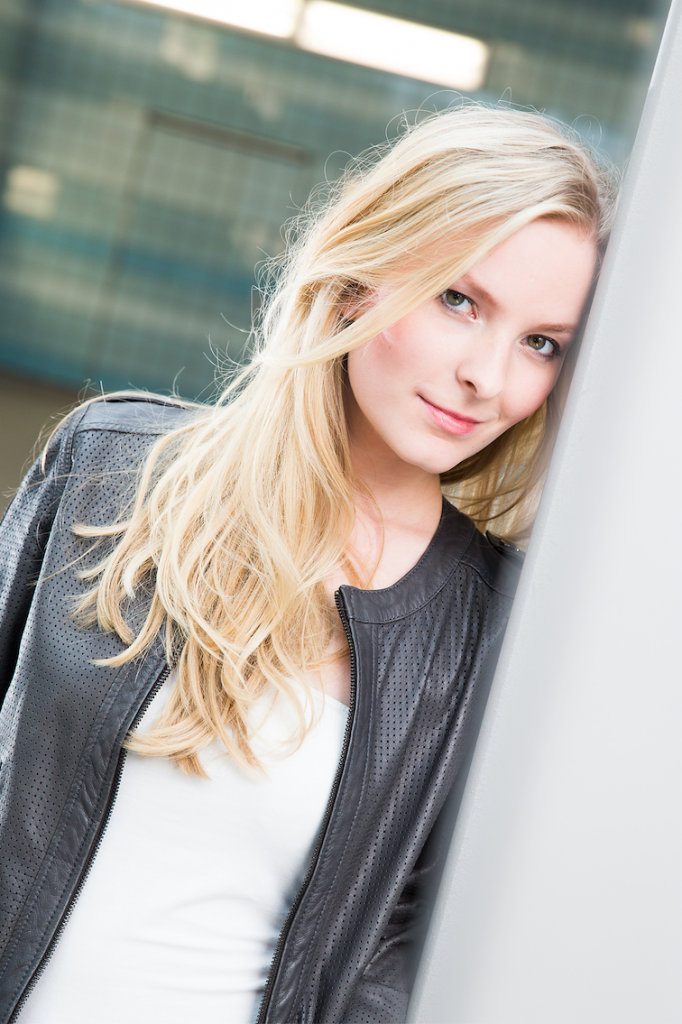
If I had to give other young singers and also myself advice it would be to never try to sing in order to do everything correctly or to have the right technique. Instead always use your technique and study in order to say something, otherwise what you do won’t make sense or will be empty.
If you had not not become a singer, what would your dream career have been?
That’s really difficult because there are so many! I think it would have to be an author, because I used to love writing a lot.
What one thing would you take with you on a desert island?
Can I say my boyfriend?! Maybe I shoudn’t call him a thing! Maybe a really good book. Or just an empty book and a pen.
What song gets you on the dancefloor?
Any salsa or Latino style music.
Do you have a favourite composer?
Mozart.
Favourite opera?
That’s hard. There are several but amongst them is definitely The Magic Flute, Cosi fan tutte and Don Giovanni. I have done The Magic Flute and I hope to be doing Don Giovanni soon – we shall see!
Can you describe your Hot Toddy in three words?
I don’t have one here unfortunately, but I love a really dry, French red wine.
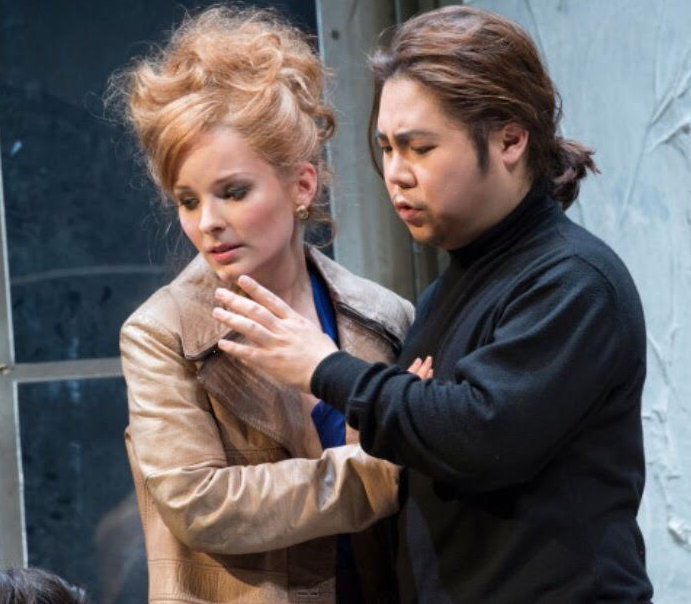
The theatre called me and asked if I could do it in five days’ time. They put a big leap of faith in me then because I’d never done anything else on the opera stage.
How did you first get into opera and why did you decide to do it as a profession?
I was a big fan of musical theatre when I was young. I started taking singing lessons and everyone was really surprised, because I’d played the piano for a long time but not sung, and no one in my family did music. But I just wanted to sing, and that just automatically shifted from musical theatre to opera. I don’t think I ever really questioned the idea of pursuing it professionally, I just had to do it.
I did my Bachelor in Hamburg in Voice and then my Masters at the Universität der Kunst in Berlin in opera singing. That’s usually the way it is in Germany. For your Bachelor you do opera, lied and oratorio and then for your Masters you can decide which one to take further.
How did you make the difficult jump from studying to starting to work professionally?
I was really lucky while I was still studying to start working at the Kiel opera house. That was quite a coincidence because while I was still in Hamburg finishing my Bachelors I had heard that they were auditioning for tiny roles that students could do. I didn’t have any connections there or know much about it, so I just called the woman responsible for them. She knew me a little because she was teaching in Hamburg. I said that I’d love to audition, and then she called me a few days later and asked if I could audition the next day because someone had cancelled.
I went and it was for this tiny role in an opera by Lully called Atys. I had the tiny role of Flore. The conductor was Ruben Dubrovsky, who was great. Because I speak French quite well, he asked me to learn the role of Sangaride, one of the big roles, because there was no one covering it.
Four months later the soprano was sick, which was also a big coincidence, because she is usually never sick. The theatre called me and asked if I could do it in five days’ time. They put a big leap of faith in me then because I’d never done anything else on the opera stage. I was 22 and I just told the Operndirektor1 ‘yes I can do it, don’t worry’.
Afterwards, I took a breath and thought ‘can I really?!’ But it worked out fine and from then on I always got guest roles there. I think that helped a lot, because by the time I finished my Masters I already had a bit of experience and I think that made it a little bit easier to find work afterwards.
After that, how was it working at the theatre in Kassel?
The first role I did there was Musetta as a Wiederaufnahme2 and we only had two weeks of rehearsals. I shared the part with another soprano, so it was good that I’d had stage experience before. Otherwise if you’ve never sung anything big on stage and then do that without rehearsals, it could be a bit stressful. I also guested in other places, and started working in Darmstadt after that.
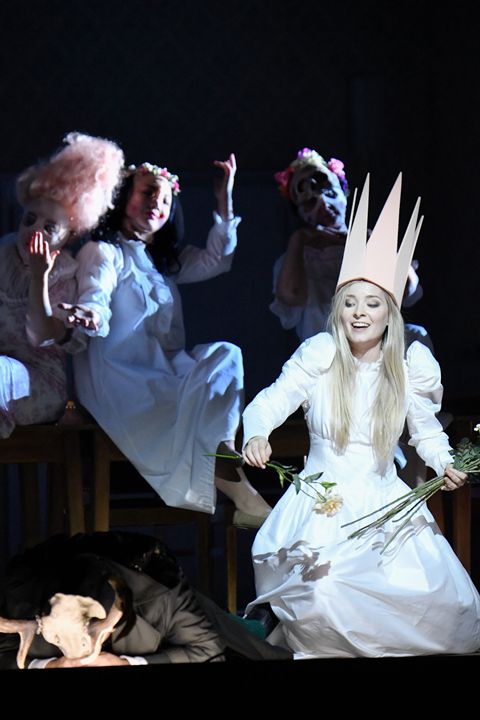
In general, I think at the beginning it’s difficult to find the balance between respecting that you are working with amazingly talented people who have had decades of experience in the industry, and on the other hand still trusting that even though you may not have been doing it for decades, what you feel artistically is still valuable and important.
What are the hardest things about being a young singer, particularly a soprano?
The competition, especially for sopranos, is so big. Also, my family has always been extremely supportive and I wouldn’t be doing this without them, so to me that’s a big factor and I imagine it to be even more difficult if you don’t have your family’s support. I do think that, since my family is not in the music world at all, people who grow up with parents being musicians as well learn to move through this world with much more self assurance and with more confidence in saying ‘I feel this music like this, so it is correct’ right from the beginning.
For me, it took a little longer to trust that my artistic instinct has just as much worth and importance. On the other hand, I think growing up in a family with no musical background had the advantage for me that I wasn’t pushed by anyone else, and I could really find my own way.
In general, I think at the beginning it’s difficult to find the balance between respecting that you are working with amazingly talented people who have had decades of experience in the industry, and on the other hand still trusting that even though you may not have been doing it for decades, what you feel artistically is still valuable and important. That can be a challenge.
Do you feel that the theatres you have worked in could have supported you more at the beginning of your career, or have you been well supported?
I feel like I was thrown in at the deep end but I think that was good for me, because you learn to swim somehow. I do think that music colleges, at least from my experience, could be more practically oriented. I didn’t really learn that much outside of learning to sing itself. I did have one weekend about contract rights. It must be hard for the music colleges to guide the young singers from studying to the next step, but it would be useful to learn more. How do you get an agent, how do you audition? These kind of questions are important.
How did you get an agent?
Since I had my foot in the door a little bit, I could invite people to my performances, or I could tell them what I’d done and send them a recording. I found my first agency while I was in Kassel because a colleague recommended me. My other agent had heard me sing a few times and we had spoken after performances. We’d always said we should do a proper audition sometime so her colleagues could hear me as well, so we did that. I would say work brings work. That’s really hard sometimes because that first foot in the door is really difficult.
I would say if you know for yourself you can’t do a role or take a certain opportunity, then you’re right. On the other hand, I don’t think anyone ever feels 100 per cent ready, so wherever there’s a little chance, it’s important to say ‘here I am, let me try’.
Do you ever struggle with nerves?
Not for performances, not really. That’s more in rehearsal situations for me. Auditions for me are always fine, because I always see it as that’s really the moment to be yourself. There’s no one that’s going to be as good at being you as you. So you can just go there and hopefully show a little bit of ‘hey that’s me’. That’s an offer. If you mess up, you won’t hurt anyone else but yourself. If it doesn’t work, it doesn’t work, and you have to get used to that as a soprano anyway.
But then the first rehearsal of a production I do get a little bit more nervous than for the audition, because I feel like, ‘okay now they’ve chosen me. They’ve taken a step in my direction, so now I better deliver!’
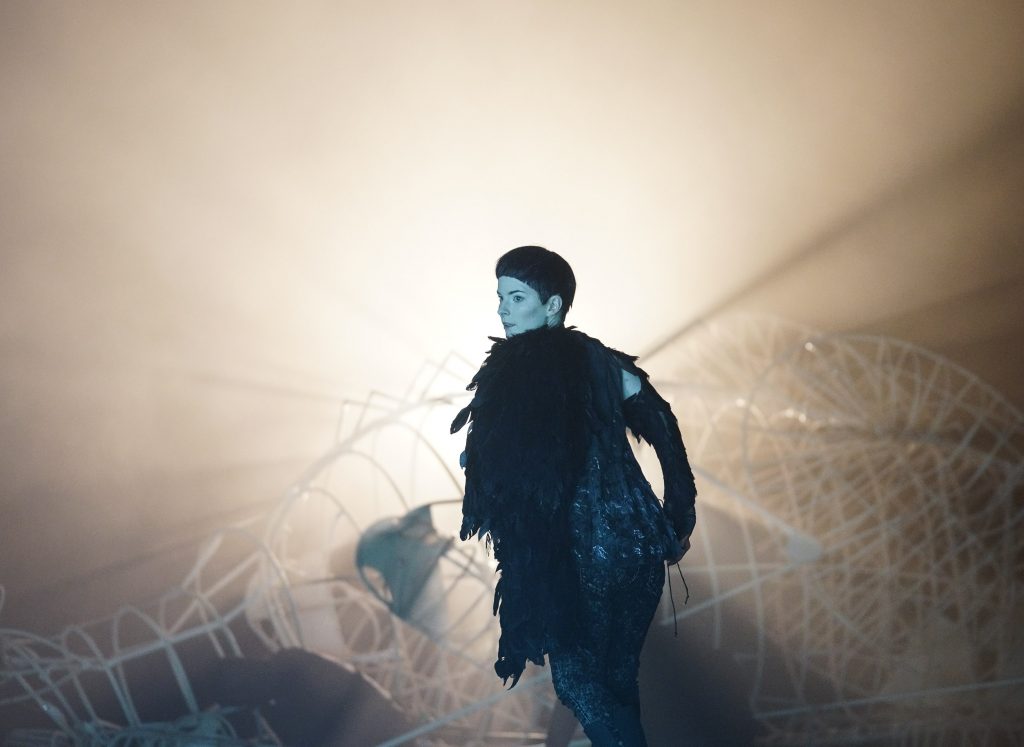
For me it’s always about the way the character’s emotions are put into music. If I can understand that, it’s easier to sing.
How have you sustained your career so far?
It can happen any time that work stops coming. In general I think it’s most important that you must never feel like you’ve made it. You must always keep pushing and trying. It sounds a bit of a cliché, but it’s important.
How do you find that motivation to keep pushing?
Obviously I don’t always manage to keep pushing all the time, but imagining ‘how would it be if I could sing that role there?’ definitely helps. Seeing other people motivates you as well. When your friends get great jobs, it makes you think ‘cool, I want to do that as well’. But in the end I think the greatest motivation is the music and the moments on stage themselves, because otherwise it wouldn’t be worth it.
Do you have a fixed career plan?
No. Not at all, which is weird. The only thing I would definitely say is that I need to feel like what I am doing is good – not perfect, of course, but generally on a good level. If I’m not happy with what I’m doing, I at least have people around me that I can learn a lot from. I wouldn’t be happy with the feeling of being parked somewhere, stuck with the feeling that I’m fooling myself, like I can keep going but I’ll always be mediocre.
In this case I would prefer having less financial security but learning from great people, being somewhere when things happen. I need to feel satisfied and like I’m making music with other great people. If they’re better than me, that’s also great, because I’m learning from them.
Has your voice already changed and developed since you started? Do you see it going a certain way in future?
Yes I would say that with being on stage my voice has developed. I still study with my teacher and learn from her, but just having to do rehearsals and shows and having to function gives you a much better knowledge of you and your voice than you can obtain from going to your voice lessons every week.
I just feel like my voice is becoming more grounded over the years and also I think my height above high C has become easier, so I could see myself going into a bit more of a lyrical direction with coloratura. In general I’m very happy to have found an amazing teacher who knows my voice incredibly well and who I trust without limits. That’s worth so much.
What kind of repertoire do you what to do that you haven’t done yet? Are there any particular roles you’d like to do?
I’d love to do Susanna [Le Nozze di Figaro] or Ilia [Idomeneo]. I love singing Handel as well, so I’d love to do some Handel roles. I’ve done so many Baroque operas but somehow never a Handel opera. And then Gilda [Rigoletto] would be great. In general I feel very “at home” with Mozart: I’d love to do Konstanze [Entführung aus dem Serail] in ten years for example. That’s because of the role and the music.
For me it’s always about the way the character’s emotions are put into music. If I can understand that, it’s easier to sing. There are arias that are technically easy in theory, but what happens is that when I sing them I feel like I sound like someone who never studied, because I don’t “get them” emotionally. When I feel like ‘I know exactly how that feels and what that means inside you’ then it’s always easier.
Has the acting side always come naturally to you, or have you had to work at it?
Actually part of why I am an opera singer is acting and those moments on stage. That’s why opera is in many ways easier for me than concert singing. I love how in opera everything comes together and forms that unity of music, words, character, story. It brings it all together in one thing. To me, that’s a very intense feeling.
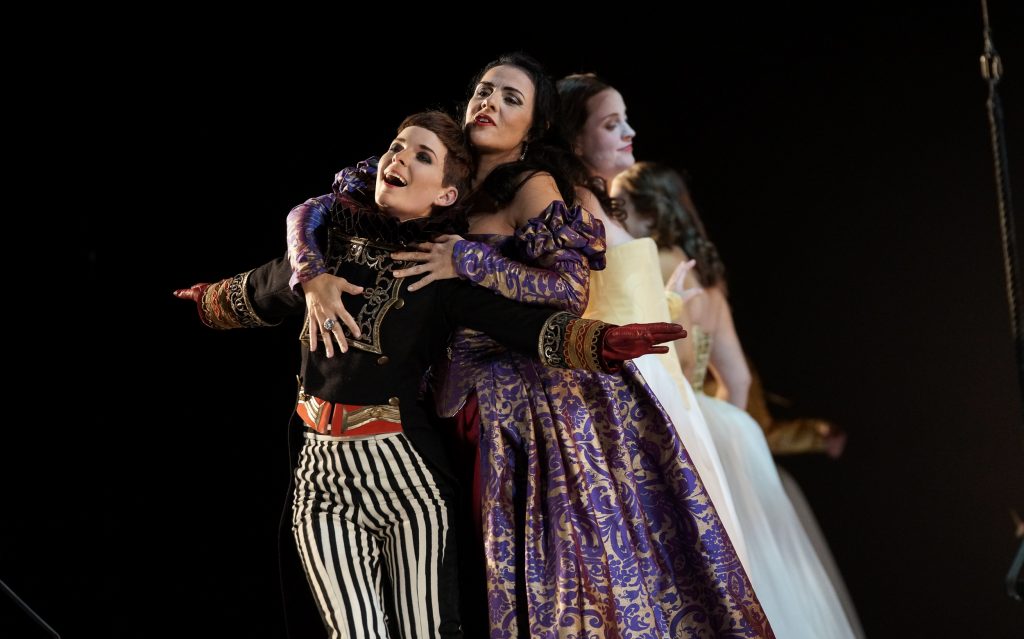
You’ve done quite a few performances as an ‘Einspringer’, where you step in at very short notice. How do they compare to being in a longer rehearsal process? What’s it like?
Obviously you wouldn’t say yes to something that you know in your heart you’ll mess up. Otherwise it’s just a process of learning step by step, going from one thing to the next. You’re focused and you know you have to function, so you do. That can sometimes give it that extra energy. There are always stage director assistants who are there to guide you through the staging.
What’s the shortest rehearsal period you’ve ever had for a jump in?
I did a jump in for the role of Karolka in [Janacek’s] Jenufa which is not a big role, but I arrived at the theatre two hours before the show and then the stage director’s assistant had forgotten her notes, so she had to go to her place to get them, then come back. We went to look at the video of the staging on her computer together, because the theatre hadn’t been able to send me one two days earlier when I’d agreed to do the show. It was now one hour before the show.
We looked at the video together and I realised it was a different version to the one I’d done before. I had asked the theatre several times if their version was definitely the same as the one I’d done before, and they said yes, but it wasn’t! Most of it was the way I had done it, but there were four moments where either bars were left out or had been added. It was very stressful!
I had also done it previously in Czech and they were doing it in German. When they called me before, they’d said I could do it in Czech, but I’d said I would learn the German words, even though that made it even more complicated to relearn. I’d also asked for a rehearsal with the conductor or at least a pianist.
In the end my rehearsal was that the conductor came to me while I was getting my make-up done and just said ‘hi, do you have any questions?’ I just had to say, ‘well not really’ and he said ‘well then, good luck!’ and left! Luckily in the end it was all fine, even though I had to also dance in the first act!
What advice do you have for young singers?
It feels a bit weird to give advice because I’m still at the beginning of my career myself. If I had to give other young singers and also myself advice it would be to never try to sing in order to do everything correctly or to have the right technique. Instead always use your technique and study in order to say something, otherwise what you do won’t make sense or will be empty.
I think opera houses have very old hierarchy structures. I’m not saying they don’t need a hierarchy because art does; it can’t be a free-for-all, but some things need to be reformed.
What changes would you like to see happen in the opera world?
I think opera houses have very old hierarchy structures. I’m not saying they don’t need a hierarchy because art does; it can’t be a free-for-all, but some things need to be reformed. With Daniel Cohen for example, the GMD3 at Darmstadt, it’s so much fun to work with him. He is an amazing leader and he allows the people he is leading to create art as well while still maintaining his authority.
There’s another group of people that see the theatre-making process as a way to demonstrate power, and that’s not really making art. I’m not sure if that can be changed by changing the structure of the opera houses. Maybe it’s just an old-fashioned way of thinking that will change over the next decades anyway. Any change would have to be done carefully.
Another thing I would like to change is to have more people who come out of performances saying ‘I just didn’t get it and I was really tired because I didn’t sleep well last night’ or ‘it wasn’t for me’ if that is how they feel. I prefer that to people who say ‘that was very meaningful to me’ when it really wasn’t, who talk in an artistic way in order to seem more intelligent and worthy. Getting rid of that stuffiness is important.
I feel like when I started at music college we were all a bit like that as well, but I figured out that it didn’t make me happy in the long run, and I’d rather have something real and have a real reaction. We need to make theatre in a way that anyone can understand it – or if not always logically understand it, be impacted by it emotionally, not just by someone who has written a doctoral work on Mozart operas. It needs to be less of a of an ego trip for stage directors who just want to show that they can do something intelligent or unusual.
What qualities do you need in a good stage director?
A really well thought-through character arc for my role. I like to see that they’ve really thought it through and that the way they create the characters really makes sense, is real and doesn’t just serve the purpose of doing something new. I always feel that if stage directors manage to stick to that sense of being real in intention and in how they show the emotions of the characters, then that is always clear when you go and see a performance.
I’m not saying stage direction needs to go back to how it was at the time of Elizabeth Schwarzkopf where it’s all only about the singer singing, but I think there are some exciting younger, and older directors that are putting together ideas for evenings that are more captivating, and not just turning up to ‘be a director’.
In order to be a great stage director you need to want to create great stagings, instead of just wanting to be a great stage director. You need to be into the piece and the music. I feel like there’s sometimes a detachment from the music. Everyone wants to make their own version which is understandable, but sometimes it goes too far from the music. These composers aren’t still famous five hundred years later for no reason. I think it’s always best when the music and text becomes one thing.
I liked our Die Zauberflöte in Darmstadt because I felt like it just made sense and wasn’t trying to impress people – and then, without trying to, did. Obviously you can have extreme ideas if they work with the piece, but too often it’s done in order to impress people. If impressing people is your aim, then being impressed is not something that connects you to art. It actually puts distance between you and the art, because you’re here and it’s over there.
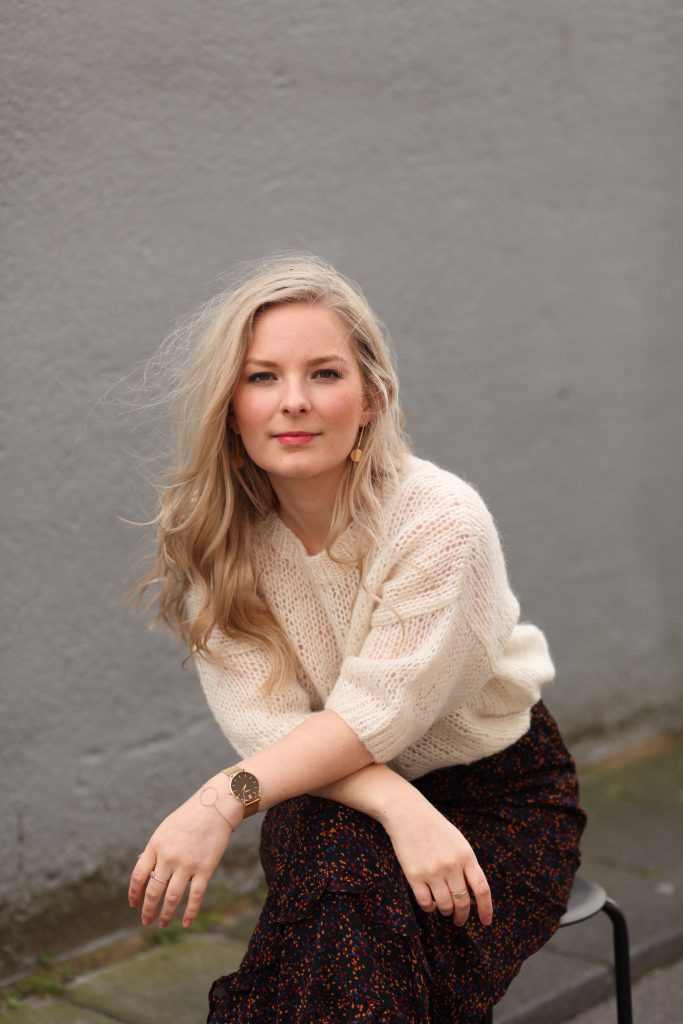
I do think that right now we are extremely privileged in opera and in art here in Germany, and I hope it stays that way. I’m not sure that it will.
What are the qualities you like to see in a conductor?
The best conductors transfer the emotion in the music to the people they are conducting, and then they transport it back to the audience. It’s like they have an emotional subtext for every phrase. I just love those moments when you sing and you have that connection to the conductor and you know that they’re feeling the same idea. You breathe together and you know ‘ah, this is that moment’.
Also when a conductor looks like they’re enjoying every second of it; that is contagious. I’ve already mentioned that Daniel Cohen does this in Darmstadt, but also Francesco Angelico, the GMD in Kassel. I also worked with [the Czech conductor] Vàclav Luks. He is so fantastic and has this Ensemble, Collegium 1704, in Prague, and they perform Baroque music. When he conducted, I had my one aria which I didn’t really understood so well emotionally, but when he conducted it, I always got it and sang better. I always sing better when there’s that contagious energy.
What do you think opera will look like in 100 years time?
That’s very difficult! I’m definitely worried that financially things might get worse, especially after Corona. I do think that right now we are extremely privileged in opera and in art here in Germany, and I hope it stays that way. I’m not sure that it will. I also worry that opera is losing the connection to people growing up now. We need people to come and listen. In the best case, maybe it would be great if it was something a bit more fresh, just honest art that has some connection to the people making it and the people going to listen and watch it.
When I did La bohème in Kassel they always had these youth groups coming to the theatre to do weekend workshops, and then at the end they go to see the performance. A colleague and I went to be interviewed by them for an hour and they showed us a performance that they had prepared. They loved it so much because it was close to them. Then after the performances they were cheering so much. I think it’s really important for opera to show itself as something touchable and close to young people.
Even if you don’t have much experience, it’s so valuable if you can go to a rehearsal or go and do a little scene yourself, or listen to someone singing three metres in front of you. I feel like kids would love that. I would have loved that, even if I hadn’t have had anything to do with it. That teenage age group is important.
I think if the people making opera aren’t real and are working in an arrogant way, then that’s the death of opera. I want to be able to have the feeling that I could invite my friends who aren’t into opera to things that I’m doing without worrying they’ll get bored. At the end of the day, opera really is so cool and it relates to all of us, but many people just don’t know! That’s a bit tragic sometimes, and I wish that could change in the future.
Notes
- The Operndirektor in a German theatre (not to be confused with a ‘Regisseur’, the artistic opera director) manage the overall working environment for the opera artists in the theatre. They are also sometimes involved in casting.
- A Wiederaufnahme is when a staging returns for a second season, usually because it was so successful in the first season it was premiered in.
- The GMD (Generalmusikdirektor) is the chief conductor of a German opera house. They have first preference on what to conduct and are the chief musical authority on all musical matters in the house.
